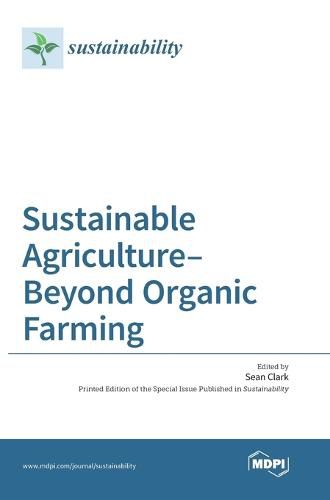Readings Newsletter
Become a Readings Member to make your shopping experience even easier.
Sign in or sign up for free!
You’re not far away from qualifying for FREE standard shipping within Australia
You’ve qualified for FREE standard shipping within Australia
The cart is loading…






This title is printed to order. This book may have been self-published. If so, we cannot guarantee the quality of the content. In the main most books will have gone through the editing process however some may not. We therefore suggest that you be aware of this before ordering this book. If in doubt check either the author or publisher’s details as we are unable to accept any returns unless they are faulty. Please contact us if you have any questions.
The current conception of organic farming is the result of nearly a century of intellectual thought and dialogue, field observations and experiences, systematic experimentation, and codification of rules. Debates on the future viability of organic farming often focus on its capacity to produce sufficient food to meet the demands of a growing human population. Yet any thorough examination of the pros and cons of alternative farming approaches should consider much more–for example the side effects on soil, water and air; energy and land-use efficiency; global warming potential; conservation of biodiversity; waste generation and recycling; farmer and community well-being; animal welfare; and the capacity to function and meet demands long into the future. The chapters in this book represent perspectives on organic farming and food systems from widely different academic disciplines and different regions of the world. They include replicated field experiments, modelling, systems analysis, case studies and literature reviews. The findings, interpretations, and ideas shared will likely generate as many questions as answers, but asking the relevant and difficult questions is as critical as finding the right answers. This diverse group of authors makes interesting and useful contributions to our ongoing conversations about food, agriculture and the evolution of organic farming.
$9.00 standard shipping within Australia
FREE standard shipping within Australia for orders over $100.00
Express & International shipping calculated at checkout
This title is printed to order. This book may have been self-published. If so, we cannot guarantee the quality of the content. In the main most books will have gone through the editing process however some may not. We therefore suggest that you be aware of this before ordering this book. If in doubt check either the author or publisher’s details as we are unable to accept any returns unless they are faulty. Please contact us if you have any questions.
The current conception of organic farming is the result of nearly a century of intellectual thought and dialogue, field observations and experiences, systematic experimentation, and codification of rules. Debates on the future viability of organic farming often focus on its capacity to produce sufficient food to meet the demands of a growing human population. Yet any thorough examination of the pros and cons of alternative farming approaches should consider much more–for example the side effects on soil, water and air; energy and land-use efficiency; global warming potential; conservation of biodiversity; waste generation and recycling; farmer and community well-being; animal welfare; and the capacity to function and meet demands long into the future. The chapters in this book represent perspectives on organic farming and food systems from widely different academic disciplines and different regions of the world. They include replicated field experiments, modelling, systems analysis, case studies and literature reviews. The findings, interpretations, and ideas shared will likely generate as many questions as answers, but asking the relevant and difficult questions is as critical as finding the right answers. This diverse group of authors makes interesting and useful contributions to our ongoing conversations about food, agriculture and the evolution of organic farming.